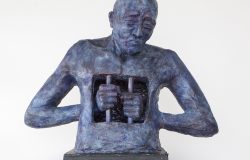Ikigai (ee-key-guy) is a Japanese term that roughly translates as ‘a reason for being’. Okinawans, much revered for their longevity, have a matchless diet of super foods and are practitioners of an ikigai mindset. It’s argued that this combination of an Okinawan diet, sensible exercise, and a strong connection for why they get up in the morning make Okinawans extraordinarily healthy in their bodies, minds and spirits, and life-long members of the 100+ club!
People with this connection to their ikigai have an illuminating inner dimension to their lives that balances the love of what they do with an awareness that they are great at what they do. They know that the gifts they share with the world are both needed and of enough value to earn a living. It’s a deeper, more soulful version of the occidental raison d’être.
Sadly, not everyone I encounter in coaching or across the workplace seems to have a strong sense of alignment or calling towards a primary focus in his or her life. Many lack passion and mooch through life with no clear mission. They might be enjoying an income, but not really feeling that their talents are adding value to the world. It’s not a bad life; it just feels hollow or unappreciative of the bejewelled and dazzling potential they know is buried inside them.
As humans, we seem to be driven to find meaning in what we do with our lives. There is an ache within us when we feel amputated from meaning. When we are disconnected from why we do what we do, life is lacklustre.
“Those that have a why to live can bear with almost any how.”
Viktor Frankl
The Austrian neurologist and psychiatrist, Viktor Frankl chronicled his experiences and ultimate survival as a concentration camp inmate in his book, ‘Man’s Search for Meaning.’ Finding meaning in your existence when you are enduring such brutally cruel conditions provides valuable clues for people experiencing hollow everyday lives from which they may wish to become emancipated.
Frankl believed that life has meaning under all circumstances, even the direst ones. His experiences taught him that our main motivation for living is our drive to find meaning in the experience of life. Most importantly for us, he derived meaning from his own survival through the various camps affiliated with Dachau. It is this wisdom he incorporated into his existential therapies. He teaches us that above all else, we all have the freedom to find meaning in what we do and our experience of life. It is all in the attitude we choose to take when faced with unchangeable suffering.
I watched my stepmother, who was bearing the ache of grief for her recently lost husband, meticulous cater for the fussy and eccentric eating preferences of her four legged companions. Everyday of her life she boiled rice, stewed meats, diced vegetables, crushed vitamins and produced a bona fide buffet of delicacies for her furry friends.
After a hearty feast they were groomed – brushed and cleaned; tonics massaged into itchy skins. Finally their bedding was plumped and they nestled down, resplendent in their regal blankets and glowing with the love she had bestowed. My stepmother found great fulfillment in her life through caring for her animals. She occupied nearly four hours of her days dog-whispering her love in acts of devotion to her little creatures. She endured her grief and in those moments she flourished. Every morning she stepped into the world knowing no one else but her could care for her beloved animals.
We are all meaning making machines and the stories we create to derive meaning from and for our lives either hold us back or take us forward. A friend of mine landed a role in an organisation that, on paper, looked like her ideal job. She was certain that her ikigai would blossom with such an opportunity. When we caught up after the first, crucial 100 days in the role the light in her was dwindling like a spluttering candle.
Like most roles, the job didn’t deliver what the description promised, and whilst she could do the job exceptionally well, and get paid handsomely for it, she somehow had no passion for that work and felt this was not what she was meant to be doing with her life. Try as she did, she could not make meaning from doing the work that was required of her in that role. She quit. She went and made meaning for her life, sharing her gifts where they were needed. And she glowed again like a beacon of hope.
The universe seems to sing back a thank you when we have a synchronicity between what we do and the meaning we derive from it. It’s like a holy covenant exists within us requiring us to align what we do and why we do it. When we get this right, the quest of life becomes exhilarating and we are illuminated by our fulfillment.
Deciding what sort of quest we are embarking upon is key to where we will find fulfillment and meaning. If it’s purely an economic quest that drives us, well then we are enslaved to all those sources of money and material well-being that surround us. If, however, we are on a physical quest, well then, there ain’t no mountain high enough, no ocean deep enough, no river wide enough to assuage that desire.
When we follow a path that strives to find meaning from our experience of life we are on the spiritual quest. And if your quest is spiritual in nature it affords you the endless pleasures of exploring the deepest values and meanings by which people live. Joseph Campbell says, “There is nothing you can do that’s more important than being fulfilled. You become a sign, you become a signal, transparent to transcendence.” You electrify the world with your presence when you are fulfilled.







Thank you Cal for being so eloquent with your explanation of why I’m doing what I’m doing. You are a true Humble Sage.
You are most welcome – I guess you worked out you were that friend in that story!